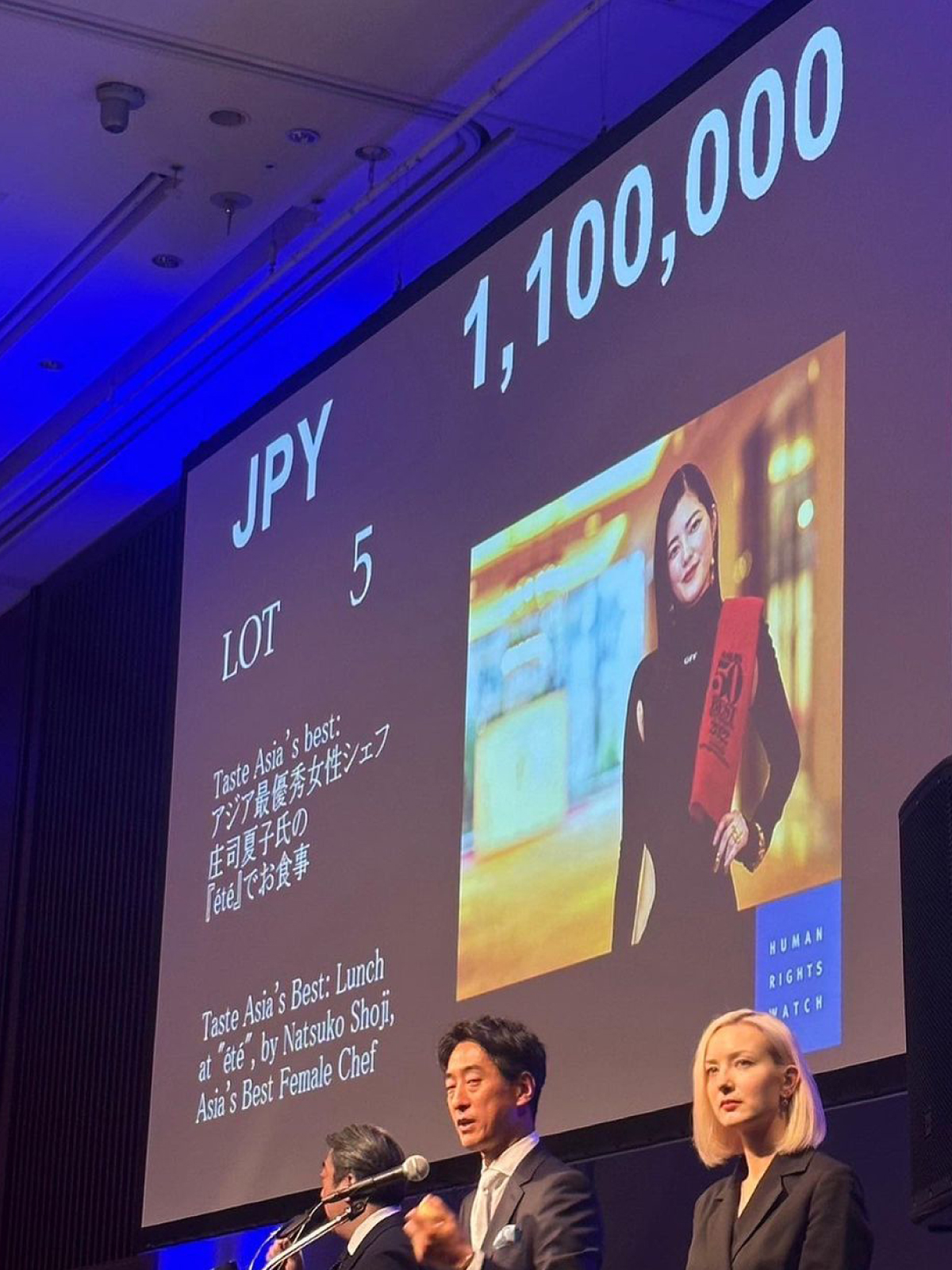Exhibited at the charity auction of Human Rights Watch, an international human rights NGO
été has donated a pair of meal tickets to the charity auction of the international human rights NGO Human Rights Watch.
The winning bid was 1,100,000 yen, all of which will be used for Human Rights Watch’s domestic and international human rights protection activities, including the “Home for Children Who Cannot Live with Their Parents”.
Looking at our country, Japan, there are more than 40,000 children who cannot live with their parents. Moreover, about 80% of them live in group homes. This is despite the fact that the Convention on the Rights of the Child states that “children who grow up in a family environment should be given top priority. Following policy recommendations made by Human Rights Watch to the national and local governments since 2013, the law was revised in 2022 to establish “foster parent support centers” throughout Japan. However, the reality is that only about 40% of cases are matched, partly due to a shortage of staff at child guidance centers.
In light of this situation, été will continue to provide support in the hope that more children will grow up in foster care and that the human rights of people around the world will be protected.
About Human Rights Watch:
An international NGO that investigates and publicizes human rights violations in more than 90 countries around the world and makes firm recommendations to governments, corporations, and others to respect human rights. In 1997, as a founding member of the International Campaign to Ban Landmines, the organization was awarded the Nobel Peace Prize.
The organization has a staff of over 550 lawyers, journalists, and other professionals from more than 70 countries. To ensure its independence, it receives no government funding and works in collaboration with organizations around the world to promote a world where human rights are protected for all people.
The winning bid was 1,100,000 yen, all of which will be used for Human Rights Watch’s domestic and international human rights protection activities, including the “Home for Children Who Cannot Live with Their Parents”.
Looking at our country, Japan, there are more than 40,000 children who cannot live with their parents. Moreover, about 80% of them live in group homes. This is despite the fact that the Convention on the Rights of the Child states that “children who grow up in a family environment should be given top priority. Following policy recommendations made by Human Rights Watch to the national and local governments since 2013, the law was revised in 2022 to establish “foster parent support centers” throughout Japan. However, the reality is that only about 40% of cases are matched, partly due to a shortage of staff at child guidance centers.
In light of this situation, été will continue to provide support in the hope that more children will grow up in foster care and that the human rights of people around the world will be protected.
About Human Rights Watch:
An international NGO that investigates and publicizes human rights violations in more than 90 countries around the world and makes firm recommendations to governments, corporations, and others to respect human rights. In 1997, as a founding member of the International Campaign to Ban Landmines, the organization was awarded the Nobel Peace Prize.
The organization has a staff of over 550 lawyers, journalists, and other professionals from more than 70 countries. To ensure its independence, it receives no government funding and works in collaboration with organizations around the world to promote a world where human rights are protected for all people.
Published on:

